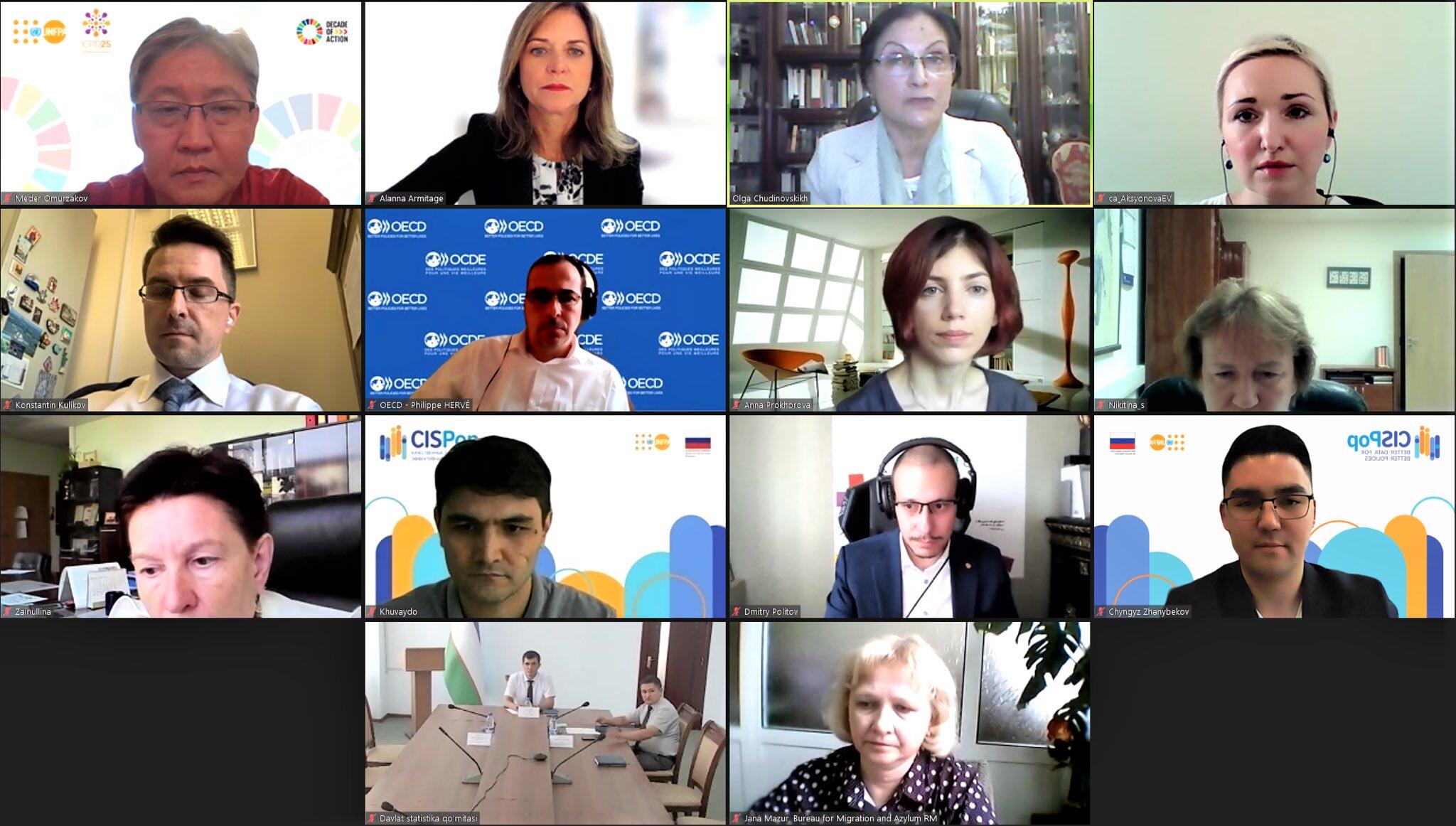A regional seminar on migration statistics for members of the Commonwealth of Independent States for (CIS) countries was held online on 22 June 2021.
Over 100 participants from the CIS region and around the world took part virtually, including migration experts, academics, data analysts and policymakers.
The event was organized by the United Nations Population Fund (UNFPA), the Russian Federation Federal State Statistics Service (ROSSTAT) and the International Center for Statistical Expertise (Centrostat), and was funded by the Russian Federation.
The seminar aimed to enhance the capacities of the participants to understand migration trends and their implications for demographic shifts and sustainable development.
“Migration continues to offer opportunities for individuals and states alike, but also poses social, political, and public health challenges,” said Alanna Armitage, UNFPA's Regional Director for Eastern Europe and Central Asia, in her opening remarks. “There is still a way to go for migration data to reach a level of completeness and consistency that is common in other areas, for example for data on mortality or fertility.”
The knowledge-sharing seminar is part of the CISPop “Better Data for Better Policies” programme. This USD $4 million three-year programme launched in 2019 to support policymakers in Armenia, Azerbaijan, Belarus, Kazakhstan, Kyrgyzstan, Moldova, Tajikistan, Turkmenistan and Uzbekistan to strengthen data-collection, analysis and utilization for evidence-based policy development in the CIS region.
The seminar enabled countries to share and exchange their knowledge and experience on using migration statistics to study and understand migration trends, and develop policies and mechanisms that allow them to live up to their responsibilities for respecting the rights and ensuring the well-being of migrants, and fully harness the benefits that come with migration.
UN Secretary-General Antonio Guterres has referred to demographic shifts - including international migration - as one of the megatrends shaping our global future.
Since 1976, when the United Nations adopted its first set of recommendations on statistics of international migration, the importance of measuring, monitoring and managing international migration stocks and flows has increased dramatically.





